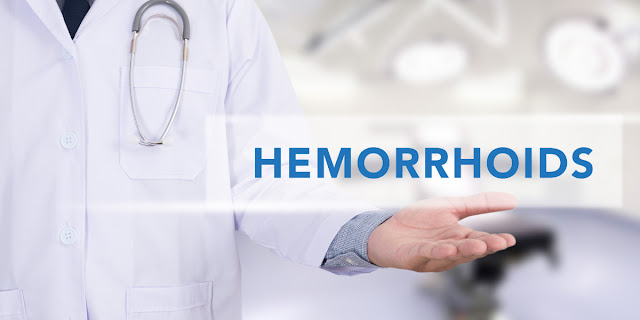Diagnosis and Treatment of Haemorrhoids
 |
| Diagnosis and Treatment of Haemorrhoids |
Haemorrhoids are swollen veins in your lower rectum
and anus which are same as varicose veins. Haemorrhoids are also known as piles
and can develop under the skin around the anus and inside rectum. Nearly 3 out
of 4 adults face this disease in a few months in the UK.
Haemorrhoids have a number of causes but often the actual cause
remains unknown. Fortunately, there are several options to treat this condition
and many individuals have been cured from this problem with a few lifestyle
changes and home treatments.
Haemorrhoids Causes
Individuals suffering from piles feel that their veins stretch due to pressure underneath, resulting in swelling. Haemorrhoids develop due to increased pressure in the lower rectum because of the following reasons:
· Being obese
· Being pregnant
· Having chronic diarrhoea or constipation issues
· Sitting for long time on the toilet
· Straining during bowel movements
· Having anal intercourse
· Regular heavy lifting
· Eating a low-fibre diet
Diagnosis of Haemorrhoids
Doctors can easily diagnose external haemorrhoids –
under the skin, around the anus – as they are clearly visible. However, they
may include examination of the anal canal and rectum to identify internal
haemorrhoids. Here are few examination procedures for the internal haemorrhoids
diagnosis.
· Visual Inspection: Due to soft nature of internal haemorrhoids, they can hardly be felt during the rectal exam. Therefore, doctors may examine the lower portion of colon and rectum using proctoscope, anoscope, or sigmoidoscope.
· Digital Examination: Doctors use gloves for insertion and a lubricated finger in your rectum. They then feel and diagnose it accordingly.
Treatment of Haemorrhoids
Individuals can relieve mild swelling, pain and inflammation of haemorrhoids with home treatments listed below.· Take warm bath regularly: Soak your anal area in plain warm water for at least 10 to 15 minutes at least two to three times a day.
· Eat high-fire food items: Consume more fruits, vegetables and whole grain items. They are rich in fibre and will soften the stool, increase its bulk and avoid further deterioration of the condition.
· Use topical treatments: Ensure applying suppository containing hydrocortisone, over-the-counter cream for haemorrhoid, or use pads which contain a numbing agent of a witch hazel.
Haemorrhoids Medications | Buy Scheriproct Online & Buy Proctosedyl
Online
You must seek
professional medical advice if haemorrhoids produce severe discomfort. They may
suggest you to buy Scheriproct Online or Proctosedyl which are suitable ointments including ingredients
which can temporarily or completely (depending on the severity) relieve the
pain and itching. Make sure that you follow the direction instructions as stated
by your doctor or mentioned on the tube to avoid mishaps.



Comments
Post a Comment